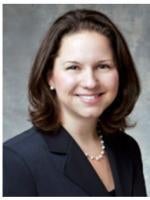In Duran v. La Boom Disco, Inc., the Second Circuit adopted a broad definition of an automatic telephone dialing system (“ATDS”) under the Telephone Consumer Protection Act (“TCPA”). The Second Circuit joined the Ninth Circuit, further deepening the circuit split on the definition of ATDS with the Third, Seventh, and Eleventh Circuit.
In Duran, the defendant used a dialing system that had the ability to send text messages to human-generated lists of hundreds of telephone numbers with a single click of a button, but allowed the user of the system to select the time the texts would be initiated. The District Court concluded that because the user could select the send time, the system operated with too much human intervention to meet the definition of an ATDS.
In reversing the trial court, the Second Circuit held that to constitute an ATDS, a device must have the capacity to (1) store lists of numbers, or generate lists of random or sequential numbers, and (2) “dial those stored numbers without human intervention.” In a decision focused both on legislative intent and a close reading of the TCPA, the Second Circuit held that a dialing system meets the first prong of this test merely by calling a stored list, even if that list is not of random or sequential numbers. The court concluded that its interpretation is confirmed by Federal Communication Commission’s broad interpretation of the TCPA. Unlike other courts that have concluded that rules promulgated by the FCC pursuant to the TCPA in orders issued in 2003, 2008, and 2012 were invalidated by the D.C. Circuit’s decision in ACA International v. Federal Communications Commission (previously discussed here), the Second Circuit concluded that these FCC Orders survived and “continue to inform” the court’s interpretation of the TCPA.
The appellate court also held that regardless of the ability to select the time at which texts are sent, a system that allows sending texts to a list with a single click does not involve sufficient human intervention to make the system not an ATDS. The Second Circuit did not, however, address whether dialers requiring the click of a button to send each individual text (or place each call) would otherwise qualify.
By contrast, as previously discussed here, the Third, Seventh, and Eleventh Circuits have held that a dialing system that “neither stores nor produces numbers using a random or sequential number generator,” but rather “exclusively dials numbers stored in a customer database,” “is not an ‘automatic telephone dialing system’ as defined by the Act.” This narrow definition would not have encompassed the dialing system at issue in Duran. Accordingly, whether a dialing system is or is not an ATDS may depend entirely on which court is considering the question.





 />i
/>i
